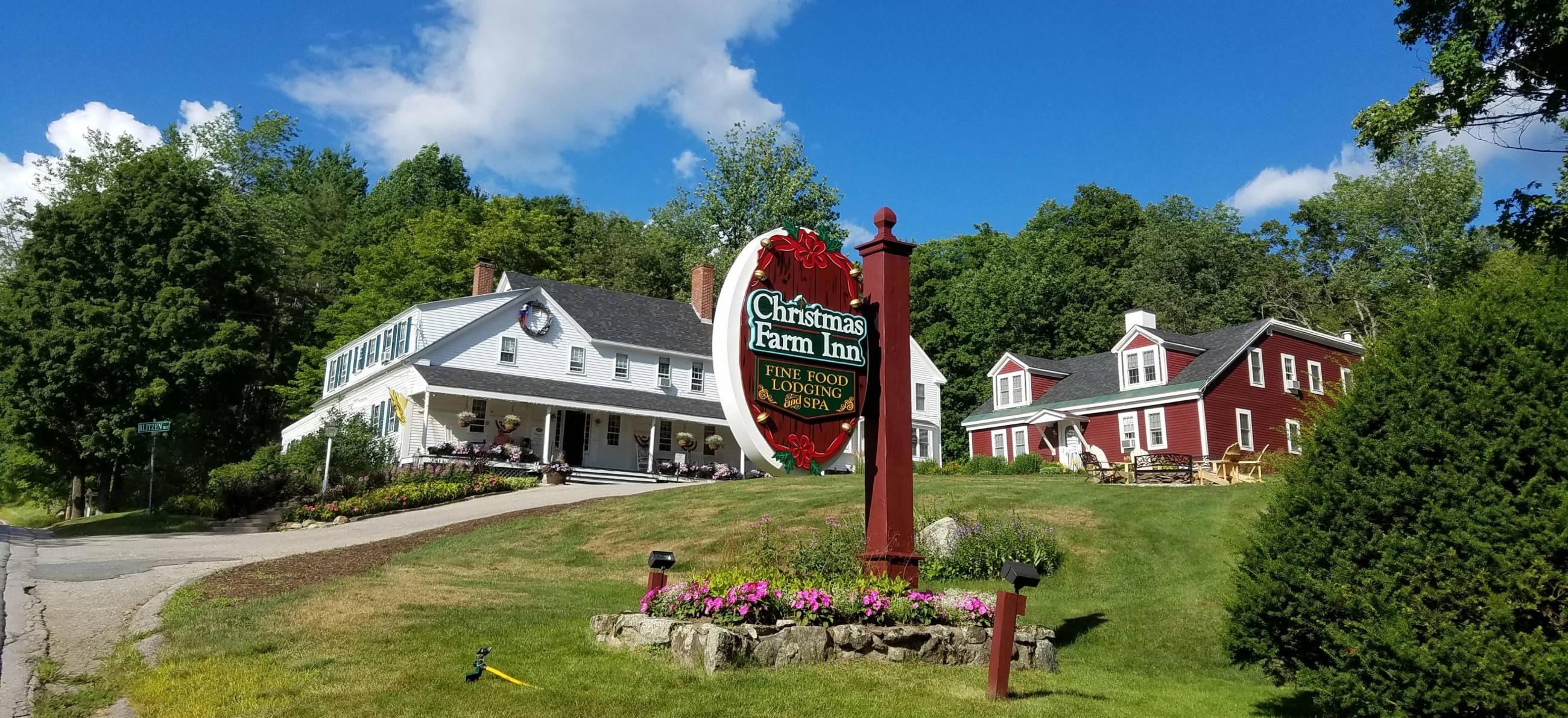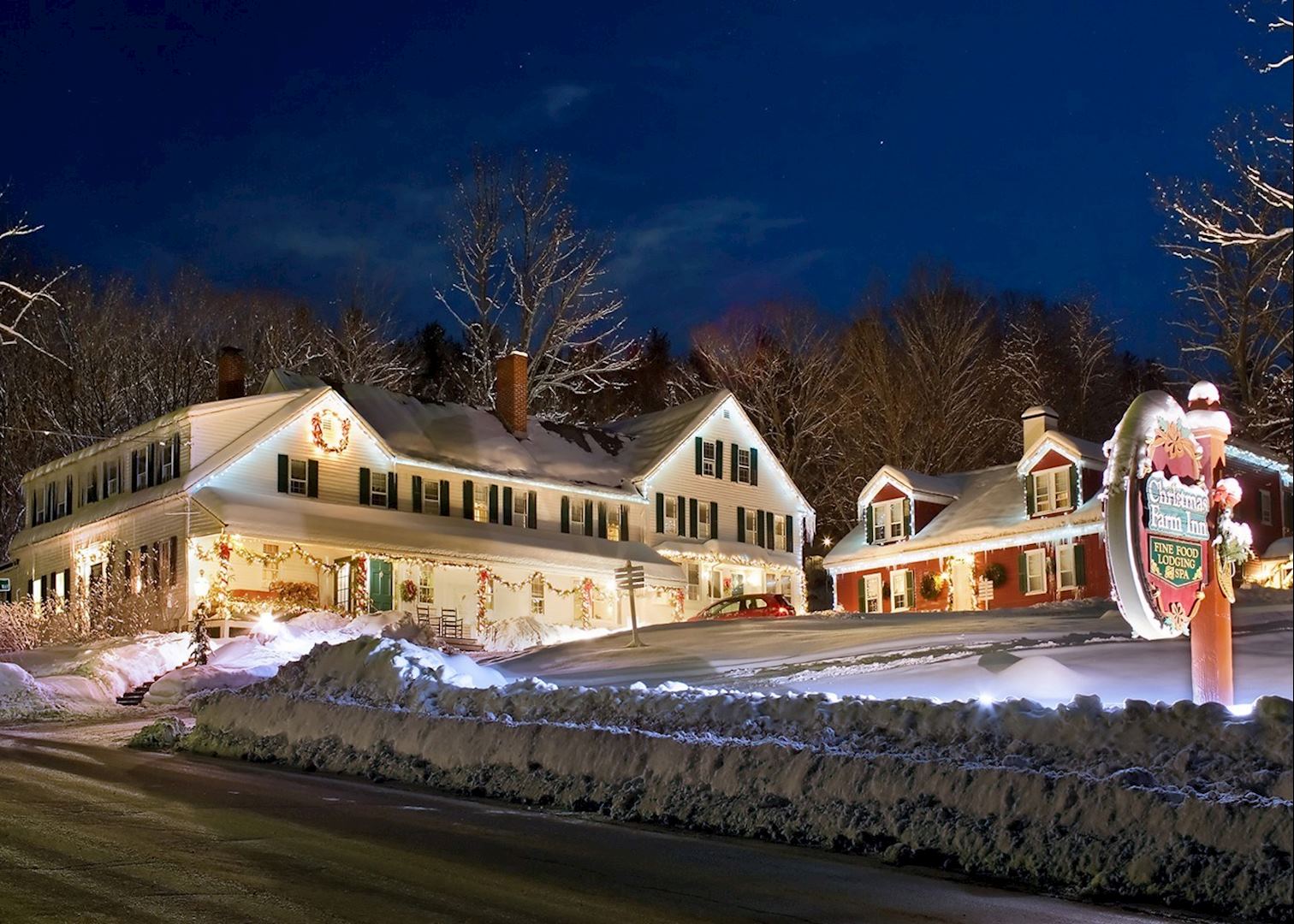Cozy Christmas Farm Inn: Holiday Getaway!
The establishment, commonly recognized by its unique festive descriptor coupled with its agrarian setting and lodging designation, signifies a particular type of hospitality venue. This type of accommodation often features a blend of rustic charm and holiday-themed ambiance, providing a distinct experience for guests seeking a seasonal getaway.
Such an inn benefits from the appeal of holiday nostalgia and the tranquility of a rural environment. The historical context of farm inns often involves adapting existing agricultural properties into lodging facilities, contributing to the preservation of rural landscapes and the promotion of agritourism. Its significance lies in offering an alternative to conventional lodging, emphasizing experiential travel and connection with nature.
Further exploration reveals the specific amenities, local attractions, and unique offerings of these types of accommodations. This analysis will focus on operational aspects, the regional impact, and guest experience, providing a comprehensive overview of this hospitality model.
- Who Are Pharrell Williams Parents Meet Pharoah
- M I A Rapper Family Husband Children
- Liz Cheney Husband Children Age Net Worth
- Who Is Kevin Bacon S Son Travis
- Who Is Austin Hahn Indiana Man Apprehended
Frequently Asked Questions
The following addresses common inquiries regarding establishments that are often referred to by a festive moniker combined with their agrarian nature and lodging purpose.
Question 1: What defines the lodging commonly known by a festive and agrarian descriptor?
The term designates a hospitality establishment, typically situated on or near farmland, which incorporates holiday-themed decor and activities into its operational model. It aims to provide guests with an immersive and seasonal experience.
- Perry Mattfeld S Wiki Husband Height Net
- Who Is Rogel Lazaro Aguilera Mederos Wife
- Robert Hernandez Bio Age Wiki Facts And
- Does Phaedra Parks Own A Funeral Home
- Chelsea Gibb Biography Age Height Husband Net
Question 2: What types of amenities are generally available at such an establishment?
Amenities vary but often include lodging in the form of rooms or cottages, dining options featuring locally sourced produce, recreational activities such as hiking or sleigh rides (seasonal), and access to on-site agricultural features. Specific offerings depend on the individual business.
Question 3: What is the typical seasonal period for such an establishment?
While some may operate year-round, the peak season generally coincides with the winter holidays, typically from late November through early January. Certain businesses may extend their seasonal offerings to include fall harvest festivals or summer agricultural events.
Question 4: What is the expected price range for accommodations?
Pricing varies based on factors such as the size and type of accommodation, the time of year, and the amenities included. Expect rates to be higher during peak season and for specialized packages.
Question 5: Are these types of lodging typically family-friendly?
Many of these establishments cater to families and offer activities suitable for children, such as farm animal interactions, holiday-themed crafts, and visits with seasonal characters. It is advisable to confirm specific family-oriented amenities prior to booking.
Question 6: What is the cancellation policy for reservations?
Cancellation policies differ among various lodging locations. It is imperative to review the specific cancellation terms and conditions at the time of booking to avoid potential financial penalties.
This FAQ provides clarification on frequently asked questions. Individuals should consult directly with the specific establishment for detailed and up-to-date information.
The next section will delve into the historical roots and evolution of similar rural hospitality concepts.
Operational Recommendations for Seasonal Rural Hospitality
This section outlines recommendations derived from the operational model of establishments known for their seasonal theme and rural setting, specifically for application within the hospitality sector.
Tip 1: Seasonal Ambiance Enhancement: Implement thematic decor and activities that align with specific seasons, particularly the winter holidays. This contributes to a distinct and memorable guest experience. For example, consider offering holiday-themed craft workshops or festive dining options.
Tip 2: Leverage Local Resources: Prioritize partnerships with local farmers and artisans. Sourcing local produce and crafts enhances the authenticity of the experience and supports the regional economy. This may include featuring farm-to-table dining options or selling locally made products in an on-site shop.
Tip 3: Experiential Programming: Develop a range of interactive activities that engage guests with the rural environment and seasonal themes. Examples include guided nature walks, farm animal interactions, and participation in agricultural activities (where appropriate).
Tip 4: Optimize Online Presence: Maintain an active and informative online presence, showcasing the unique features and seasonal offerings. High-quality photography and detailed descriptions are essential for attracting potential guests. Ensure the website is mobile-friendly and easy to navigate.
Tip 5: Customer Service Excellence: Emphasize personalized customer service and attention to detail. Train staff to anticipate guest needs and provide exceptional support. This contributes to positive word-of-mouth referrals and repeat business.
Tip 6: Strategic Pricing: Implement a pricing strategy that reflects the value of the unique experience and seasonal demand. Dynamic pricing may be considered to maximize revenue during peak periods. Offer packages that bundle accommodations with activities and dining.
These recommendations emphasize the importance of thematic coherence, community integration, and exceptional customer service in creating a successful and sustainable rural hospitality business.
The concluding section will provide a concise synthesis of the key aspects discussed and their implications for this niche sector of hospitality.
Conclusion
This exploration has illuminated the distinctive characteristics of establishments identified by a festive holiday term coupled with their agrarian setting and lodging function. The analysis has underscored the importance of seasonal ambiance, community integration, and experiential programming in defining these accommodations. Furthermore, the operational recommendations highlight the necessity of strategic pricing, optimized online presence, and customer service excellence to ensure the success and sustainability of these businesses.
The continued evolution of the "Christmas Farm Inn" model, and similar seasonal rural hospitality concepts, rests on the ability to adapt to changing consumer preferences while preserving the authentic charm and unique experiences they offer. Future success depends on a commitment to sustainable practices, community partnerships, and the delivery of consistently high-quality guest experiences, solidifying their place within the broader hospitality landscape.
- Who Is Ciara Bravo Dating Now Past
- Utah Ivana Meandzija Missing Or Found Case
- Astrology Birth Chart Of Matthew Sturniolo Tiktok
- Hgtv S Designer David Bromstad Has A
- Jim Caviezel Net Worth 2024

Christmas Farm Inn, Jackson New Hampshire Christmas farm, Nh hotel

Inns in Jackson, NH White Mountains Getaways at Christmas Farm Inn

Christmas Farm Inn Hotels in New England Audley Travel